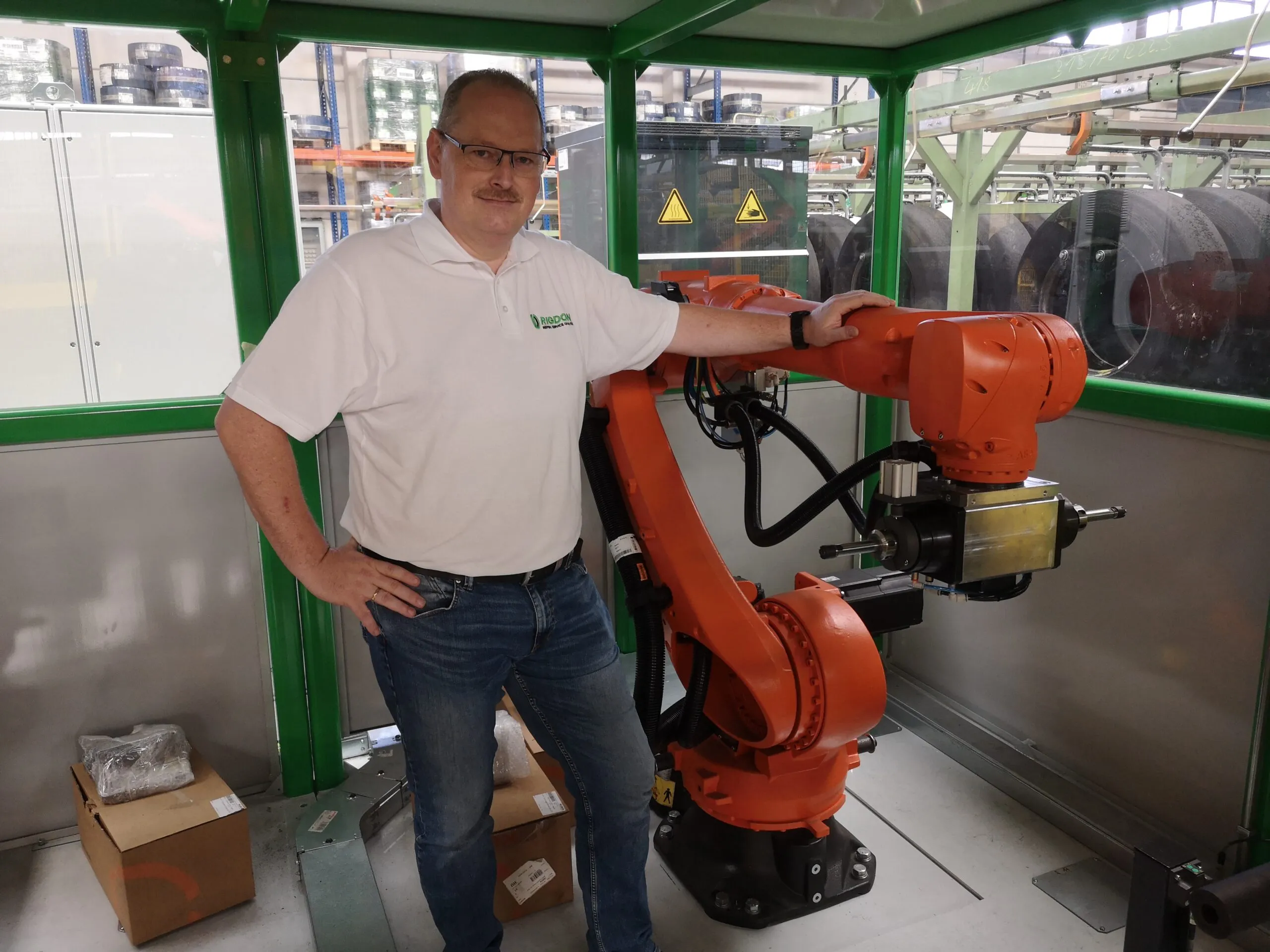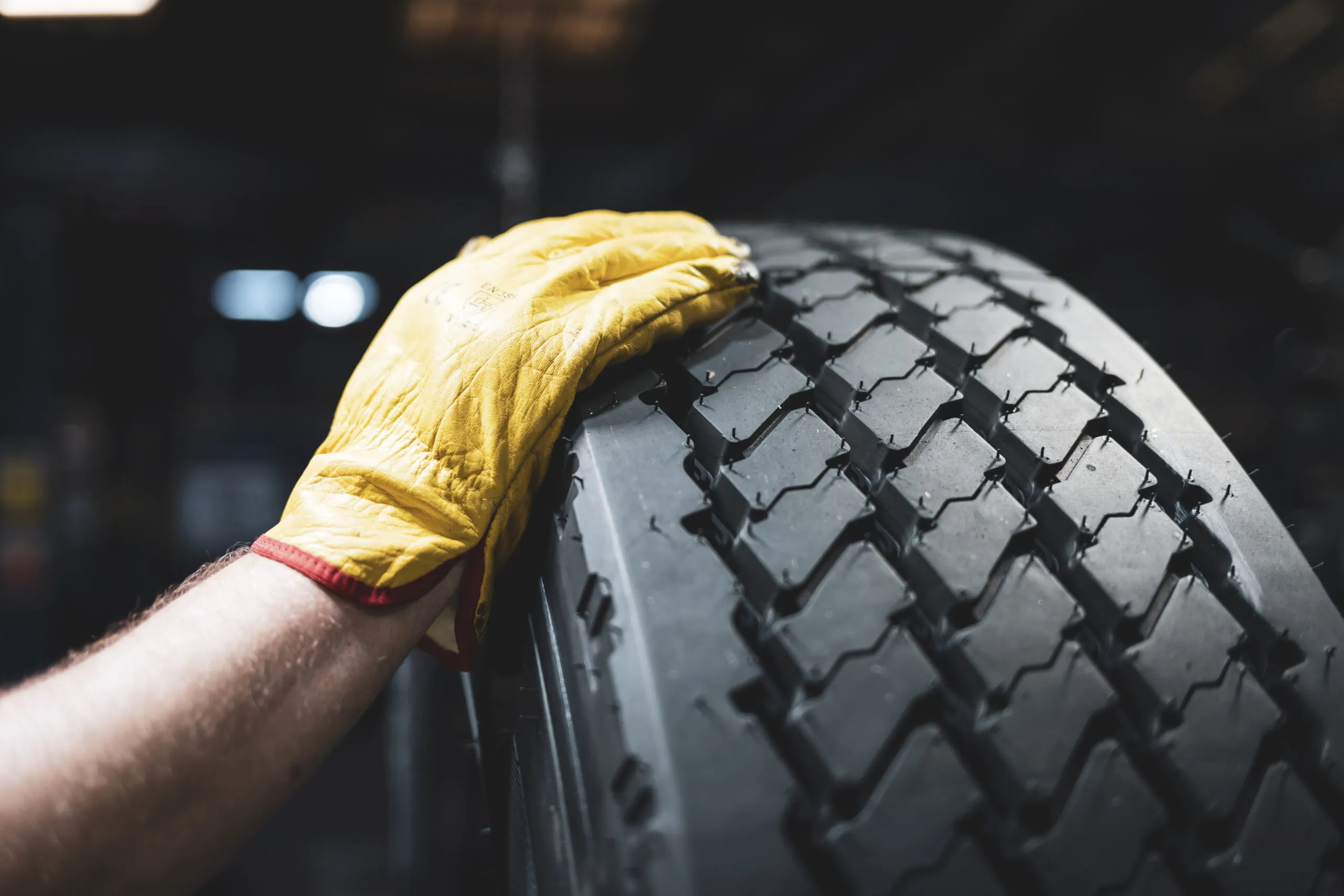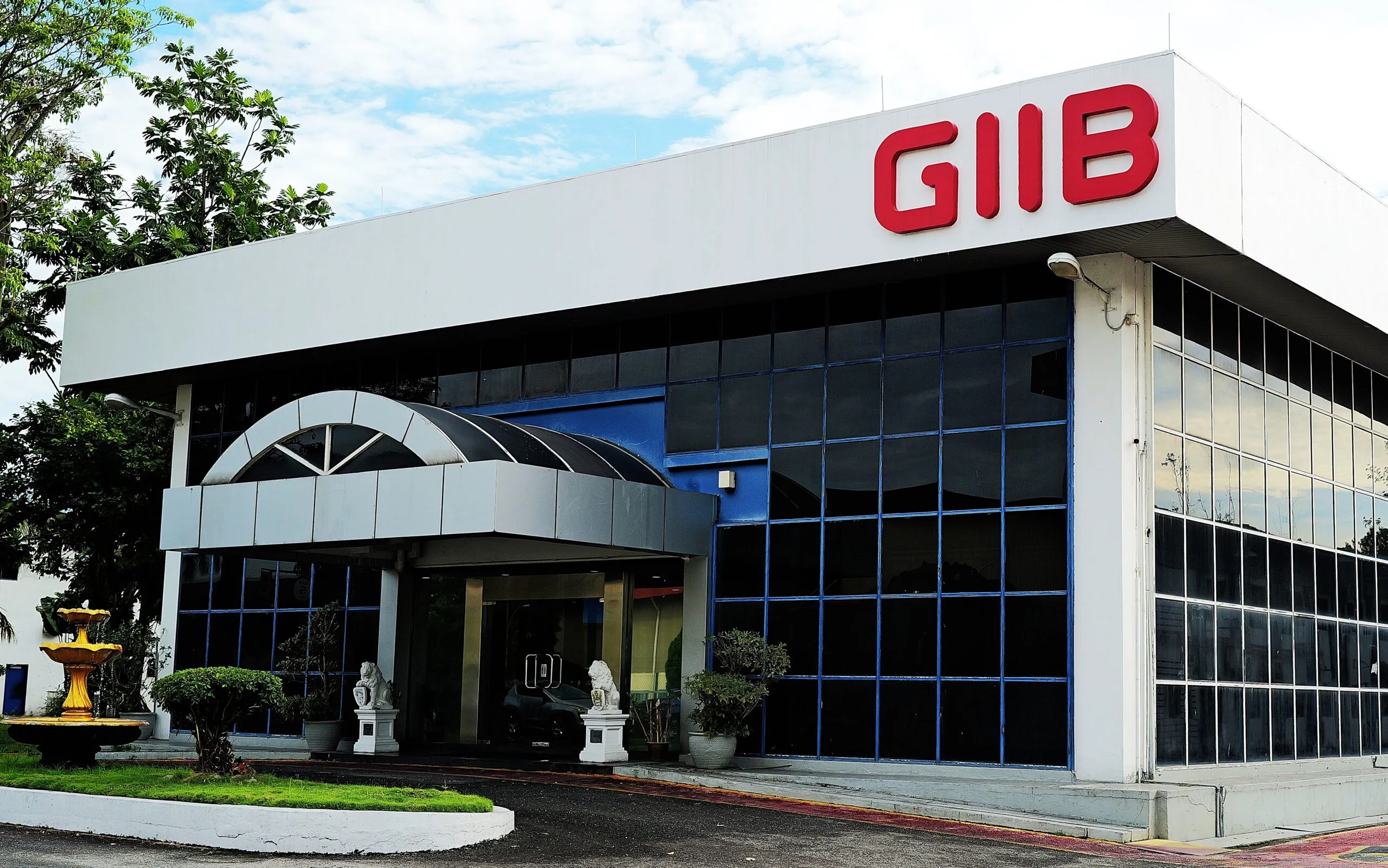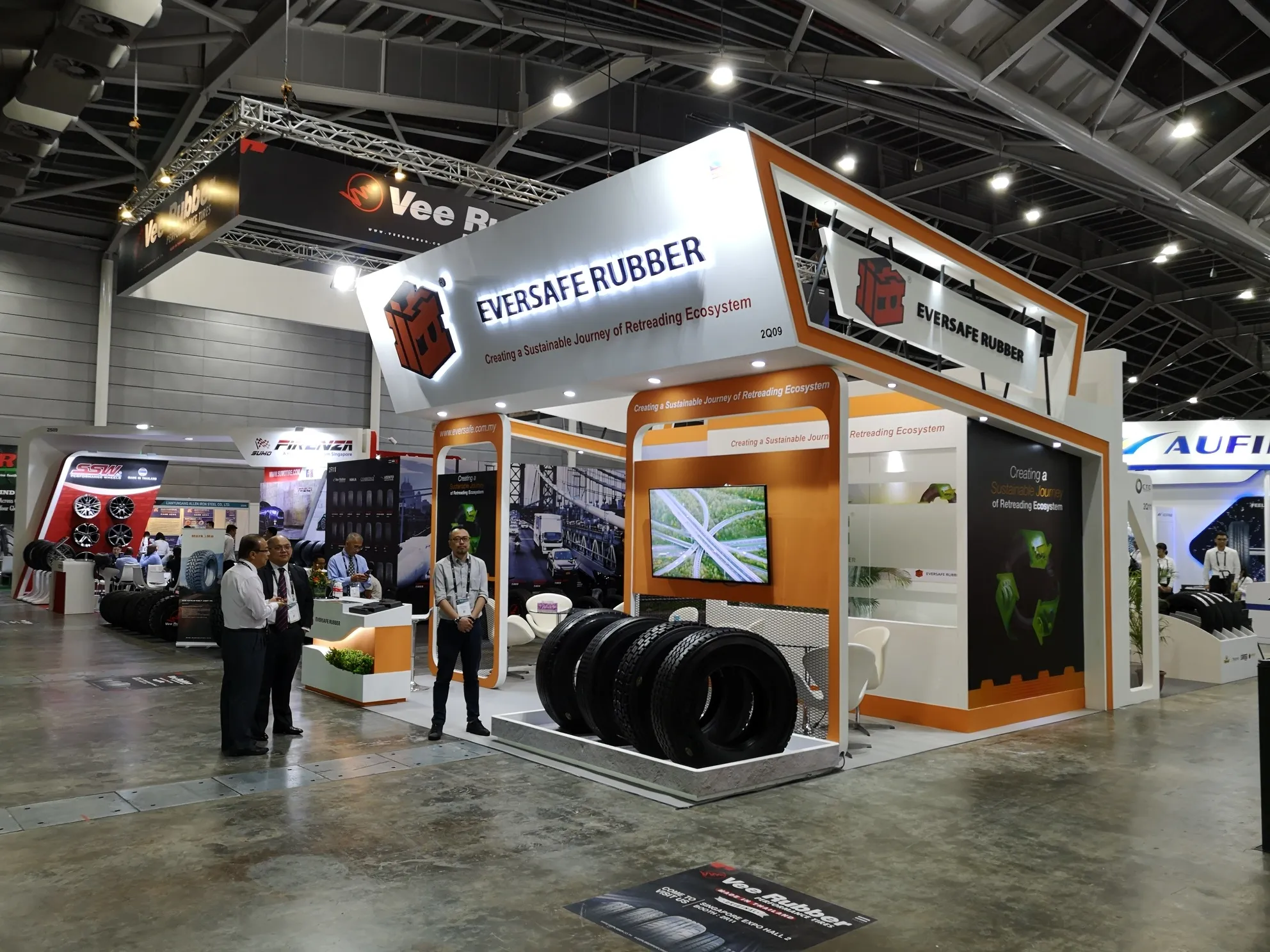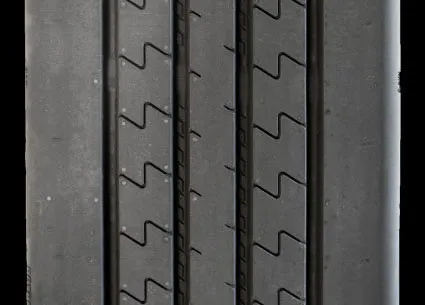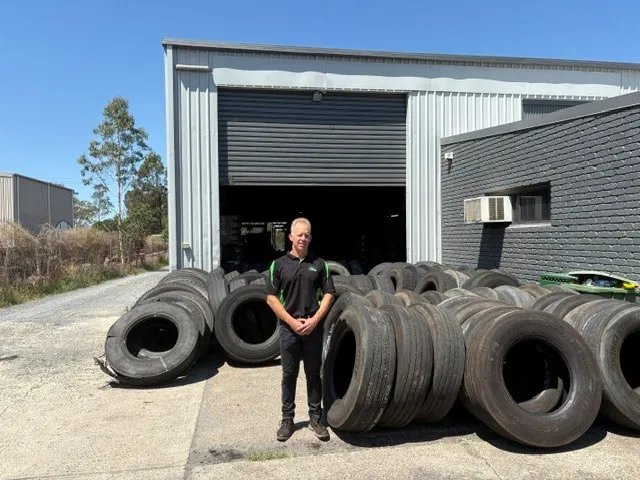The day we visited Germany-based retreader Rigdon GmbH’s headquarters in Günzburg was an opportune one, for its was the day after the company announced that it was to receive government funding to the tune of 2.4 million Euros for the construction of a new passenger tyre retreading plant with an annual capacity of 300,000 tyres. The main reason we were there, though, was not specifically to talk about Rigdon’s passenger retreading project, but to find out more about the company’s deserved leadership position in the area of automation. We were not disappointed, and we were left with the image of a company that stands right at the forefront of technological development in the retreading sector.
German Retreader Showcases Latest Developments
Rigdon GmbH was established at the end of 2014, following the insolvency of the Reifen Ihle Group, and is now under the leadership of Günter Ihle, who had joined the Ihle family business in 2001. The company still operates from Reifen Ihle’s traditional factory location in Langer Staudenweg, and still considers the new company as part of the Ihle family heritage (Rigdon is an acronym for Reifen Ihle, Günzburg, Donau), but, in truth, the company, which today produces 45,000 truck retreads, 1,500 OTR retreads and 5,000 van/transporter retreads per year as well as carrying out 9,000 major repairs, is a totally different operation to the business which was split up and re-sold ten years ago.
A Change in Approach
The first point Günter Ihle makes during our visit is to emphasise his belief that historically the retreading industry made a serious mistake in how it marketed itself to end-users. “Very often, people were afraid of driving quickly on retreads, so retreaders always told clients that if they stuck to certain speeds they would be alright. This was an error because it led to the belief that there would be a problem if they drove quicker. Such prejudice was passed on to other people and has become deeply ingrained in the psyche of the customer base. This must be changed.”
Nowadays, all trucks in Rigdon’s fleet run exclusively on retreads, including on the steer axles. “We have to demonstrate that we have confidence in the safety and quality of our products,” he adds.
In addition to policies such as this, Günter Ihle has become a leading player in the AZUR Network, the WdK-run body, which has started to promote retreading in Germany and its neighbouring countries so effectively.
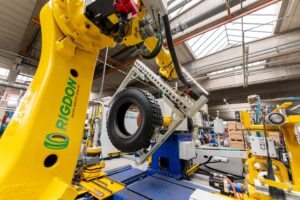
Investments in Innovation and Sustainability
Particularly worthy of note are the investments Rigdon is making in equipment (5.5 million Euros), the company’s fleet (0.7 million Euros) and a photovoltaic plant so that the company can sustainably produce its own electricity (1.8 million Euros).
In terms of investment in the factory, it is in the area of automation and robotics where the company has made the biggest strides. This overall strategy has included several separate projects, the first of which was the signing of a technology partnership agreement in 2019 with TRM covering both buffing and building processes. This agreement covered the installation of two Eagle Truck 3000 buffing machines. These two machines, says Günter Ihle, are capable of being managed by a single operator and can process more tyres than the six machines they replaced. The next step, he says, is the automatic loading of the buffing process. A new handling robot had been installed at the time of our visit but was not yet operational.
The development of automatic conveyor systems is another key area of development for Rigdon. The RIGDON Storage Division, which is specialised in this area, has enabled the company to do this in-house.
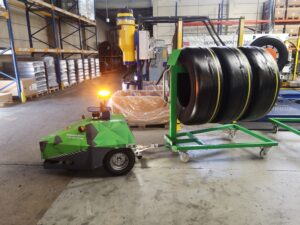
In addition, Rigdon, in conjunction with Innok Robotics, has one of the first series of autonomous vehicles that can transport green tyres around the production plant, on uneven floors, which is very often the case in existing buildings.
Other areas of innovation either already implemented or in the process of development include:
– The development of a shearography prototype together with Zeiss (today Italmatic) using AI technology.
– A development project in collaboration with the local company TTZ – Technology Transfer Center and Italmatic for the skiving of carcasses
– The installation of an automatic spray booth robot supplied by Italmatic.
– The installation of an automatic scanning system supplied by Italmatic.
Patented Sidewall Technology for Pre-cure Retreads
In addition to the above projects, Rigdon holds a patent on a sidewall matrix for precured retreaders, which allows precured retreads to be manufactured with a quality and appearance comparable to new tyres. This technology is used in Günzburg for the manufacture of Rigdon’s own precured retreads, -.
For Günter Ihle, innovations such as this are symptomatic to the company’s whole approach to the retreading sector. “Our benchmark is not other retreaders,” he says. “It’s the new tyre industry.”
Passenger Retreading Plans Progress
Finally, it would be remiss of us to publish a story about retreading without talking about Rigdon’s plans to reinvigorate the passenger retreading sector. “The German market for car tyres is 49 million units,” says Günter Ihle. “That’s where the music plays in the scrap tyre business, and that’s why we want to get involved.”
Rigdon have spent more than two years so far on the car tyre project, planed a new building as a warehouse, and Ihle hopes that the production of passenger retreads in the plant will be able start in 2026. “We will start with van tyres and winter tyres,” he says, “but there are no limits. We won’t get to 300,000 tyres overnight, but we will see a step-by-step development over time. “We see a big future in car tyre retreading.”

